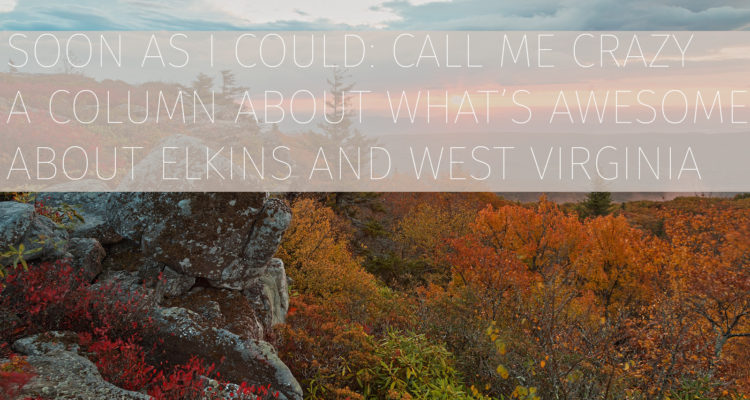Unfortunately, there is bad news about our state that cannot be waved away quite so easily.
In February, for the seventh year in a row, the Gallup-Healthways “Well-Being Index,” which ranks all fifty states according to “how people feel about and experience their daily lives,” found that West Virginia has “the lowest reported well-being.” Two years ago, reporting the fifth time that West Virginia “won” this particular contest, a Washington Post headline shouted that we are “the most miserable state in the country.”
Ouch. And we can’t ignore that kind of thing, can we? I mean, these people have PhDs!
Don’t get me wrong. I’m not arguing that West Virginia doesn’t have some real problems to solve, and there is some real misery in this state.
But there are statistics and then are statistics.
About a month ago, I was on a conference call with representatives from the National Conference on Citizenship, discussing West Virginia’s performance on what they call their “Civic Health Index,” which measures each state on dimensions like “how much people trust their neighbors, are active in their communities, and interact with their government.”
Now, West Virginia is not yet officially partnering with NCOC on this (although the Secretary of State’s office had representatives on the call and appears interested), so they haven’t published a formal West Virginia report. But those of us on the call did get some unpublished numbers, and—sit down—they show some real strengths!
For example, although we rank unsurprisingly low in some measures of formal civic health (voter registration and voting; volunteering; charitable giving, etc.), we rank quite a bit higher on some measures of informal civic health.
We are ranked fifth in the nation, for example, on “seeing and taking care of family and friends.”
We are ranked third in the nation in “doing favors for neighbors.”
And—did you get up? sit back down—we come in first in the nation on “talking with neighbors.”
Meanwhile, between 2013 and 2014, we moved from thirty-first to twelfth on “looking for things to change in the community.” When these and other measures are aggregated, NCOC finds that West Virginia ranked twenty-ninth in “overall qualities that form a basis for positive change.”
Now, I know some of the categories I mentioned above don’t sound like much. Our professionalized political system has conditioned us to think of voting as the be-all/end-all of citizenship, so it might be hard for some of you to see a community that has low voter registration and turnout as “civically healthy.”
And yes, I agree: it would be nice if we also registered to vote and actually went to our polling places in record numbers. But doing that is no guarantee of positive community-level change, and without citizens working on improving their own communities, you really don’t have a very strong democracy—even if everyone is voting.
In other words, if West Virginia were at the bottom of all of NCOC’s measures of civic health, I would pick the informal ones to work on first—the ones on which we are already doing pretty well.
It’s a start, right? So no need to feel miserable, keep talking to your neighbors, and let’s all keep our eyes open for something that needs to change in our community.
 Sutton Stokes is the associate director of the West Virginia Center for Civic Life, a nonpartisan organization that helps people talk and work together on public issues that affect life in West Virginia. From 2012 until 2016, he was city clerk of Elkins. Sutton has also worked as a freelance writer, consultant, outdoor educator, bartender, and security guard. When he looks back on his work history and education, he has to admit that all of his most important lessons came during the four years he served in the U.S. Coast Guard. Sutton lives in Elkins with his wife and two children, five minutes’ walk from his parents’ house.
Sutton Stokes is the associate director of the West Virginia Center for Civic Life, a nonpartisan organization that helps people talk and work together on public issues that affect life in West Virginia. From 2012 until 2016, he was city clerk of Elkins. Sutton has also worked as a freelance writer, consultant, outdoor educator, bartender, and security guard. When he looks back on his work history and education, he has to admit that all of his most important lessons came during the four years he served in the U.S. Coast Guard. Sutton lives in Elkins with his wife and two children, five minutes’ walk from his parents’ house.

